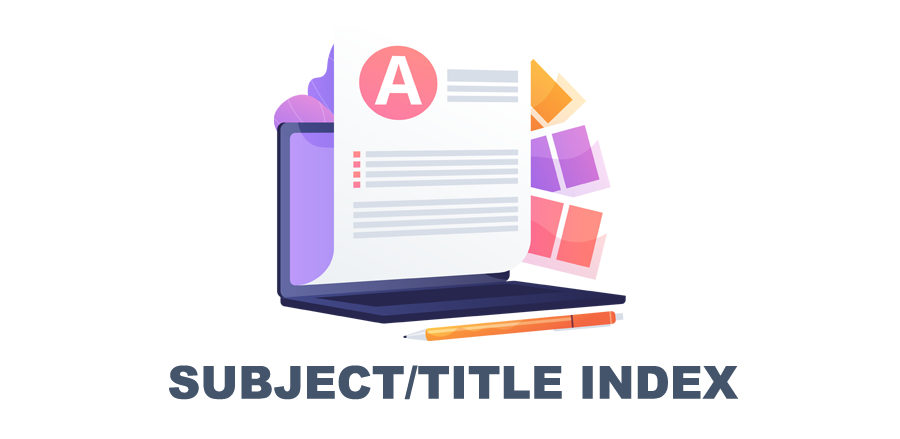Menavigasi Pendidikan Moral di Institusi Islam Melalui Kearifan Sufistik
DOI:
https://doi.org/10.32616/pgr.v8.1.488.43-55Keywords:
Pendidikan moral, Institusi Islam, Sufisme, Kearifan Sufistik, pembentukan karakterAbstract
Artikel ini menggali hubungan yang mendalam antara Sufisme dan pendidikan moral dalam kerangka pendidikan Islam. Artikel ini memberikan analisis mendalam tentang prinsip-prinsip dan praktik-praktik sufisme, seperti penyucian spiritual, perilaku etis, dan pengembangan kebajikan batin (inner virtue), serta peran pentingnya dalam membentuk karakter moral di kalangan subyek didik di institusi-institusi Islam. Dengan merujuk pada berbagai literatur dan studi empiris, artikel ini menjelajahi bagaimana ajaran-ajaran sufisme mendorong pendekatan holistik terhadap pengembangan moral, yang menekankan tidak hanya perilaku luar tetapi juga penyucian hati dan jiwa. Selain itu, penelitian ini menyelidiki metode-metode pedagogis yang digunakan oleh para pembelajar Spiritualis (mentor kerohaniaan) untuk menanamkan nilai-nilai etis dan membimbing siswa di jalur pertumbuhan spiritual dan moral yang benar. Dengan menyoroti potensi transformatif sufisme dalam menumbuhkan individu yang bermartabat dan penuh kasih, artikel ini berkontribusi pada pemahaman yang lebih dalam tentang hubungan simbiotik antara spiritualitas sufistik dan pendidikan moral dalam konteks Islam.
Downloads
References
Abitolkha, Amir Maliki, dan Ali Mas’ud. “Integration of Sufism Values into the Curriculum of Islamic Religious Education Subject in Junior High School.” UIN Sunan Ampel Journal of Islamic Education, Vol. 9, No. 1 (2021), 1-16. https://doi.org/10.15642/jpai.2021.9.1.1-16.
Al-Khateeb, Omar. ”Sufism Methodology & Its Educational Applications”, Macrothink Institute: Journal of Studies in Education, Vol. 10, No. 1 (2020), 65-76. https://doi.org/10.5296/ jse.v10i1.15726.
Amiruddin, Ahmad, Moch. Imam Machfudi, dan Muhammad Haidlor. “The Implementation of Quranic Sciences Curriculum at an Islamic Boarding School in Bondowoso, East Java.” International Journal of Islamic Education (IJIE), Vol. 1, No. 1 (2022), 1-22. https://doi.org/10.35719/ijie.v1i1.1445.
Badrudin, et al. “Strengthening Student Character Based on Sufism Values: An Insight into Ethical Leadership Practices.” Turkish Journal of Computer and Mathematics Education (TURCOMAT), Vol. 12, No. 6 (2021), 3115-3123. https://doi.org/10.17762/turcomat.v12i6.7090.
Chittick, William C. Sufism: A Short Introduction. Oneworld Publications, 2000.
Gani, A. “Urgency Education Morals of Sufism in Millennial Era.” Journal for the Education of Gifted Young Scientists, Vol. 7, No.3 (September 2019), 499-513. https://doi.org/10.17478/ jegys.603574.
Handoko, S. B., et al. “Modernism and Crisis: Seyyed Hossein Nasr's Idea on Spiritual Intelligence and Its Relevance Today.” Teosofia: Indonesian Journal of Islamic Mysticism, Vol. 12, No. 2 (2023), 207-230. https://doi.org/10.21580/tos.v12i2.18913.
Ilahiyah, Ilham, dan Yayat Suharyat. “The Role of Sufism in Moral Development of Students”, International Journal of Global Sustainable Research (IJGSR), Vol. 1, No. 3 (2023), 463-470. https://doi.org/10.59890/ijgsr.v1i3.846.
Irawan, Bambang. “Islamic Boarding Schools (Pesantren), Sufism and Environmental Conservation Practices in Indonesia.” HTS Teologiese Studies/Theological Studies, Vol. 78, No. 1 (March 2022), a7073. https://doi.org/10.4102/hts.v78i4.7073.
IT., Suraiya, S. Rijal, dan Z. Hudi Prasojo. “Sufism and Religious Practices in Modern Lifestyle,” Religio Jurnal Studi Agama-Agama, Vol. 9, No. 1 (2019), 1–21. https://doi.org/10.15642/ religio.v9i1.1231.
Karimullah, S. Sarim. “Character Education in Islamic Sufism Perspective.” Ta’dib Jurnal Pendidikan Islam dan Isu-isu Sosial, Vol. 21, No. 2 (December 2023), 72-94. https://doi.org/10.37216/ tadib.v21i2.1301.
Muali, Chusnul, et al. “The Role of Sufistic-Based Kiai Leadership in Developing the Character of Santri in the Pesantren.” Al-Ishlah: Jurnal Pendidikan, Vol. 13, No. 3 (2021), 1705-1714. https://doi.org/10.35445/alishlah.v13i3.1012.
Nicholson, Reynold A. The Mystics of Islam. London: G. Bell, 1914.
Nisa, Rafika, dan Muhamadaree Waeno. “Islamic Education Institutions with Sufism Characteristics in Classic Times (Ribath, Zawiyah, and Khanqah).” International Journal of Islamic Education (IJIE), Vol. 1, No. 1 (2022), 49-64. https://doi.org/10.35719/ijie.v1i1.1536.
Papas, Alexandre, “The Divine Reality, Goal of the Sufi Teaching.” Oasis, September 16, 2019. https://www.oasiscenter.eu/en/the-divine-reality-sufi-teaching.
Pu’ad, Dede, Uus Ruswandi, dan Bambang Samsul Arifin. “Integration of Islamic Values on Social Studies Education at Madrasah Tsanawiyah Al Musaddadiyah Garut.” International Journal Pedagogy of Social Studies, Vol. 7, No. 1 (2022), 15-24. https://doi.org/10.17509/ ijposs.v7i1.43041.
Rahaman, M. M., R. Miah, and B. Sumon. “Impact of Sufism on Moral Education”. In Conference Proceedings of the International Conference on Sociology of Sufism, Perfected Humanity and Divine Quest for Social Harmony (ICSSPHDQSH) 2023, 56-57. https://www.researchgate.net/publication/ 374465880_Impact_of_Sufism_on_Moral_Education
Salminawati, Zulkipli Nasution, dan Dedi Sahputra Napitupulu. “Philosophical Sufism and Its Implications for Islamic Education.” EDUTEC: Journal of Education and Technology, Vol. 5, No. 4 (June 2022), 1000-1010. https://doi.org/10.29062/edu.v5i4.397.
Sameh, Ahmed. “Slaying the Ego: Moral Education of the Self in Sufism and its Relations to Virtue Ethics.” Master's Theses (American University in Cairo, 2020). AUC Knowledge Fountain. https://fount.aucegypt.edu/etds/1451.
Schimmel, Annemarie. "Sufism." Encyclopedia Britannica. 3 Januari 2024. https:// www.britannica.com/topic/Sufism.
Schimmel, Annemarie. Mystical Dimensions of Islam. California: The University of North Carolina Press, 2011.
Singer, Peter. "ethics." Encyclopedia Britannica, 14 Februari 2024. https://www.britannica.com/ topic/ethics-philosophy.
Sufi Saints and Sufism. “Sufi Principles & Practices.” Diakses 18 Februari 2024. https:// sufism.weebly.com/sufi-principles-amp-practices.html.
Taja, Nadri, et al. “Sophistic Education as a Spiritual Madrasah for Early Children.” Golden Age: Jurnal Pendidikan Anak Usia Dini, Vol. 7, No. 1 (2023), 81-90, https://doi.org/10.29313/ ga:jpaud.v7i1.12126.
Uddin, Faheem, dan Erum Irshad. “Sufism, Religiosity, Life Satisfaction, Hope and Optimism: A Comparative Study of the Disciples and Non-Disciples.” International Journal of Psychological and Behavioural Research (IJPBR), Vol. 2, Issue. 1 (June 2022), 1-18. https://doi.org/10.37605/ ijpbr.v2i1.11.
Ulmadevi, U., et al. “Challenges of Islamic Educational Institutions in the Digital Age.” GIC Proceeding, Vol. 1, No. 1 (2023), 249–255. https://doi.org/10.30983/gic.v1i1.120.
Umar, Nasaruddin, dan Made Saihu. “Sufism Reason in Islamic Education.” Randwick International of Education and Linguistics Science Journal. Vol. 3, No. 1 (March 2022), 160-169. https:// doi.org/10.47175/rielsj.v3i1.406.
Wahid, Annisa. “Sufism Amid Social Turmoil: The Transformation of Sufi Orders in the Socio-Political Development of Indonesia.” Tajdid, Vol. 26, No. 2 (2023), 125-137. https://ejournal.uinib.ac.id/jurnal/index.php/tajdid/article/view/7096/pdf
Wijaya, Muhamad Rudi. “Islamic Education in the View of Sufism: Critical Study of the Role of Sufism in Islamic Education.” Ri'ayah: Jurnal Sosial dan Keagamaan, Vol. 7, No. 2 (December 2022), 127-139. https://doi.org/10.32332/riayah.v7i2.5656.
Wikipedia Contributors. "Sufism." Wikipedia, The Free Encyclopedia. Diakses 18 Februari 2024. https://en.wikipedia.org/w/index.php?title=Sufism&oldid=1208213840.
Downloads
Published
Issue
Section
License
Copyright (c) 2025 Anas Amin Alamsyah

This work is licensed under a Creative Commons Attribution 4.0 International License.







